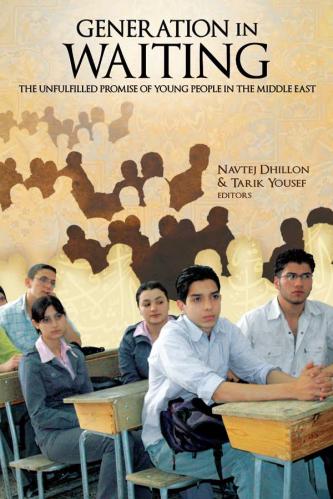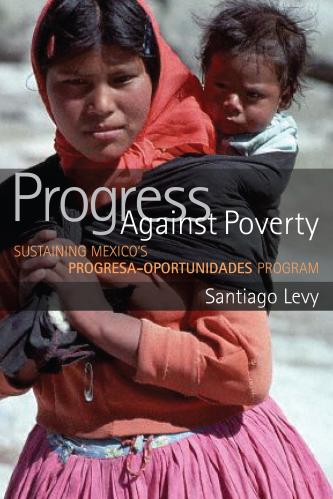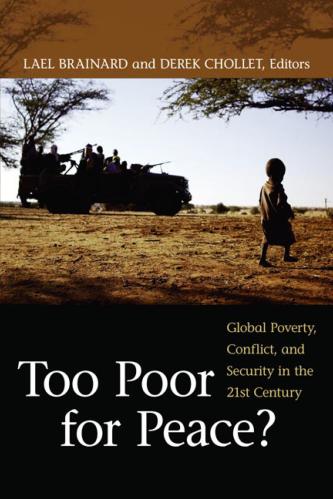Editor’s Note: On January 21, 2009, BBC Arabic interviewed Tarik Yousef, Nonresident Senior Fellow, on a radio broadcast covering reactions to President Obama’s inauguration speech and expectations for the new administration from the Arab and Muslim world. Yousef highlights the importance of the new President’s symbolic changes in rhetoric and discusses the tests that the new administration will face in the region, from the stalled Arab-Israeli peace process to the relationship with Iran. What will beckon the administration first, however, are a pressing set of domestic policy challenges. An edited translation of his remarks follow.
Listen to the interviews in Arabic » Part I (mp3), Part II (mp3)
Part I
Roula al–Ayoubi (Host): Dr. Tarik Yousef, Dean of the Dubai School of Government, joins us now. Dr. Tarik, in your opinion, what was the impact of President Obama’s speech yesterday, especially given that the policies of this administration are not yet clear? Still, was there a clear message and a major change from the speech or speeches adopted by President George Bush?
Tarik Yousef: Actually, if this speech was given one month back it would have had more of a positive impact on the Arab and Muslim world.
Al-Ayoubi: Are you referring to Gaza?
Yousef: Yes, before the Israeli invasion on Gaza. Because, in President Obama’s speech, we can clearly see there’s a new trend in the relations between the United States and the Arab and Muslim world: a relationship that President Obama wants to build on mutual respect and common interests. This tone is clear and fresh and gives the impression that there will be a change in the main principles adopted by the new U.S. administration. There is a change in many concepts that former President George Bush articulated regarding the war on terror, or the war on fundamentalist organizations, or hostility toward certain countries in the region.
Al-Ayoubi: It seems that Dr. Asali objects to this. Can you please clarify Dr. Asali?
Ziad Asali: The president has identified that the primary enemy in the world today is the network of people associated with terrorism: he too considers the issue of terrorism to be the strategic enemy of America.
Yousef: Yes, but he did not use the same terms or the same expressions. The term “war on terror” was not used in the speech given yesterday. Therefore, in my opinion, if this speech was given one month ago it would have had a more positive impact, at least when compared to what the Arab and Muslim world would have expected out of a speech given by former President George Bush.
Al-Ayoubi: If we elaborate on this point, why in your opinion didn’t he use the term “war on terror?” What was the significance of that?
Yousef: In my personal opinion, I think that there is great significance, the “war on terror” was used in the intellectual and political circles and by the United States government to such an extent that it seemed like a Quranic verse [i.e. a heavenly commandment], and not referring to this term in President Obama’s speech or avoiding it shows his keenness on ensuring mutual respect and interests between the Muslim world and the United States. In my opinion this is a great and difficult step, and least to say, it clearly indicates that this man intends to adopt a new approach when dealing with the Arab and Muslim world. The only problem is, as I referred to above, in the light of the recent events in Gaza, in the opinion of many people and leaders of the Arab and Muslim world this speech or new approach did not give a clear or sufficient message on the Arab-Israeli conflict. And, certainly the absence of the Palestinian issue in the president’s speech yesterday and the fact that he did not refer to the subject of “peace in the region” were not positive indications. It seems that, at the end, he decided to forward a vague message to the Arab and Muslim world, and stressed the importance of opening a new page of cooperation.
Part II
Roula al–Ayoubi (Host): Welcome back again to this radio broadcast of “Talk of the Hour.” This is your host, Roula Al-Ayoubi. First, I would like to begin by referring to the speech of President Barack Obama, who was sworn in yesterday as the first African-American President of the United States of America. My guests with me today are: Dr. Tarik Yousef, Dean of the Dubai School of Government and researcher at the Brookings Institution in the United States, and Dr. Ghassan Al Atia from Iraq, Head of the Iraqi Institute for Development and Democracy in London. We will also be joined shortly by other guests.
Dr. Yousef, we were talking about both your optimistic and pessimistic views as a person who helped prepare recommendations for new policies for President Barack Obama’s administration in the Middle East, and would like to further understand this: why the optimism and why the pessimism?
Tarik Yousef: Optimism, because a man like Barack Obama has successfully managed to hold the position he holds today, and insists through his new ideas on the importance of changing America’s policy in dealing with a number of economic, political, social, and internal issues, and the importance of changing America’s approach toward the Arab and Muslim world, as referred to in his speech. But this optimism toward President Obama’s speech and new approach must be viewed realistically, especially in the light of the current internal challenges faced by the United States. The economic, financial, social and political challenges will definitely take a lot of this man’s time and effort and that of his administration, and he might succeed or he might not. Some indications show that the United States is about to face an extremely complicated and challenging period internally.
Al-Ayoubi: Dr. Yousef, but we must not forget that President Obama possesses a number of positive tools that will enable him to implement his ideas. First, majorities in the Senate and the House of Representatives are on his side. Second, he has the support of most of the American people; more than 80 percent of the American people support this president. Don’t you see this as an indication that proves he can do a lot?
Yousef: Of course he has the capability of doing a great deal. But, the volume of issues have increased these past few months and are now more complicated, which means that priorities will be given to internal matters first. I have no doubt whatsoever of the ability of this man or his team to achieve a great deal, especially if we compare him to the previous administration. But the problem right now is that the Arab world, or the Middle East in particular, is very complicated on both local and regional levels: there is the Palestinian issue, the Lebanese issue, the relations with Iran, the security issue in the GCC and African continent, which all require tremendous efforts and concentration that might require prioritization. These issues will not exceed the priority of dealing with internal issues first or the relations with Europe on one hand and relations with China and Russia on the other. In my personal opinion, I think we should realize that priorities will be given to these matters first, to avoid feeling disappointed. We must give this new administration enough time to stand on its feet and identify priorities for dealing with urgent internal issues, and then give it a chance to obtain credibility in dealing with Middle East issues as referred to by the President in his speech yesterday, where he stressed upon the importance of mutual exchange, mutual interests, and mutual respect in America’s relations with the Islamic world.
Al-Ayoubi: Dr. Yousef, very briefly, what is the view from the Gulf of President Obama’s speech? Can you give us a brief idea?
Yousef: The Gulf shares the same opinion as the rest of the Arab and Muslim world. There is a lot of optimism, a great desire for a genuine partnership between the Gulf States and the United States based on interests, not just security or military, but a partnership based on economic and financial interests, trade exchange, and coordinated steps for future relations with respect to other regional issues. There is optimism amongst the Gulf countries, and I think that the Gulf countries in particular will be more open to interacting with new ideas and proposals put forward by the new U. S. administration.
Al-Ayoubi: Dr. Tarik Yousef, Dean of the Dubai School of Government, thank you very much for participating in this program.
The Brookings Institution is committed to quality, independence, and impact.
We are supported by a diverse array of funders. In line with our values and policies, each Brookings publication represents the sole views of its author(s).



Commentary
President Obama’s Speech: An Appraisal from the Middle East
January 21, 2009